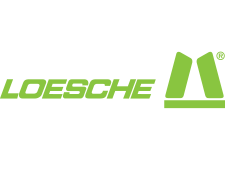FOSKOR: Proudly South African Phosphate Production
Proudly South African, Foskor is the only vertically integrated phosphates and phosphoric acid producer in the country, which enjoy international exposure. Foskor’s mining division processes phosphate rock concentrate crucial for stimulating and raising crop yields, while a renowned acid division plant manufactures sulphuric and phosphoric acids and phosphate-based granular fertilisers exporting to the likes of India, Japan, and Dubai.
Foskor is the leading South African supplier of granular fertilisers, the core ingredient in nitrogen, phosphate and potassium fertiliser products known as NPKs, and is also a commercial producer of phosphoric and sulphuric acids and magnetite, which are sold both locally and abroad.
The group’s core activities are the mining of phosphate rock and the production of phosphoric acid and phosphate-based fertilisers; Foskor mines and beneficiates phosphate rock at Phalaborwa in South Africa’s Limpopo Province, from which it is carried by rail to the production facility in Richards Bay, KwaZulu-Natal.
“One of the world’s largest producers of phosphate and phosphoric acid,” the company asserts, “Foskor is proudly South African, but internationally focused.”
VALUED ASSET
Phosphoric acid is famed for its agricultural, industrial, medical, and retail applications, its resultant products including catalysts, rust proofing materials, chemical reagents and animal feeds, among many others. Foskor itself was founded in 1951 by the Industrial Development Corporation (IDC) to produce phosphates for South Africa’s agricultural sector; to date, it proudly remains the only vertically integrated producer of phosphate ore, phosphoric acid, and granular fertiliser in South Africa.
As recently as in 2020 the company was awarded the Top Employers South Africa certification, recognising the exceptional employee conditions and talent nurturing and development on show throughout all levels of the organisation, as well as leadership status in the HR environment, always striving to optimise its employment practices and to develop its employees.
Now, more than 70 years on from its formation, while it is unequivocally the IDC’s intention to retain a stake in this crucial investment, given its importance as a strategic asset to both the IDC – still the current controlling shareholder of Foskor – and South Africa, the IDC has nonetheless recently invited interested investors to submit written expressions of interest (EOIs) to acquire a partial equity stake in Foskor.
“The objective of this invitation process,” the IDC explains, “is to invite experienced, financially strong and capable investors with a global reach and a commitment to maintaining a sustainable and profitable enterprise on the terms and conditions acceptable to the IDC. Potential exists for an interested investor to acquire a majority shareholding in this asset.
“Potential investors must have, and demonstrate, global market reach and presence, with access to extensive distribution and sales networks, proven technical expertise in operating and managing an integrated mining and fertiliser manufacturing operation and
commitment and strategic intent for the management and employees of Foskor.
“Willingness to invest in the long-term growth of Foskor and support of Foskor’s vision for growth should be demonstrated,” the IDC closes, in its bid to lure reliable partners, with international exposure and a commitment to maintaining a sustainable and profitable enterprise aligning with the terms and ethos of the IDC’s own key development objectives.
TURNAROUND STRATEGY
Foskor’s Phalaborwa mines are estimated to hold ore reserves of more than 1.5 billion tons of what are widely recognised to be some of the best phosphoric rock in the world, in turn giving the mine a remaining lifespan of close to a century equivalent with current targeted annual production. The beneficiated phosphate rock and the quality of products produced at Foskor’s plant in Richards Bay are highly coveted not only within South Africa, but on a global scale.
Several factors have conspired to mean that, in spite of the presence of more than enough ore and easily sufficient manufacturing capabilities, Foskor has historically struggled to meet the demands of the local agriculture sector. South Africa still remains highly reliant on imports of fertilisers such as monoammonium phosphate (MAP), resulting in local producers missing out on the advantage of locally produced and cheaper inputs, and especially the likes of Foskor’s MAP, a potentially highly valuable strategic asset for South Africa.
A turnaround strategy was thus implemented in July 2020, with the Foskor board seeking to develop an ameliorated economic model for the business and realise increased production within three years. Intertwined with incidences of political unrest in KwaZulu-Natal were repeated fires at the Richards Bay harbour in 2021, impacting South Africa’s national ports authority’s capacity to manage import and export cargo at the harbour, with Foskor’s production highly dependent on the import of sulphur and ammonia.
Infrastructure is also crucial to Foskor’s continued efficacy, and interruptions in the supply of both power and water have impacted its ability to consistently meet production targets; Foskor’s dependence on the performance of other industries also means that the success of its operating model is often frustratingly beyond its own control.
The advent of COVID and the subsequent total lockdown the delayed full-scale implementation of the major steps taken to arrest the impact of these various factors by many months, but Foskor President and CEO Julian Palliam is in no doubt as to the company’s ability to consistently produce quality products and increase the span of its footprint, with the implementation of the carefully crafted turnaround strategy set to only enhance this and ensure increased production.
“We believe our product ensures better yields and gives producers a strategic advantage,” Palliam stressed. “Lots of customers globally want to buy our product. The fact that our ore has lower cadmium levels makes it desirable for especially countries in the European Union.
“Foskor can without a doubt be a strategic resource for agriculture worldwide and, more importantly, for producers in South Africa.”

